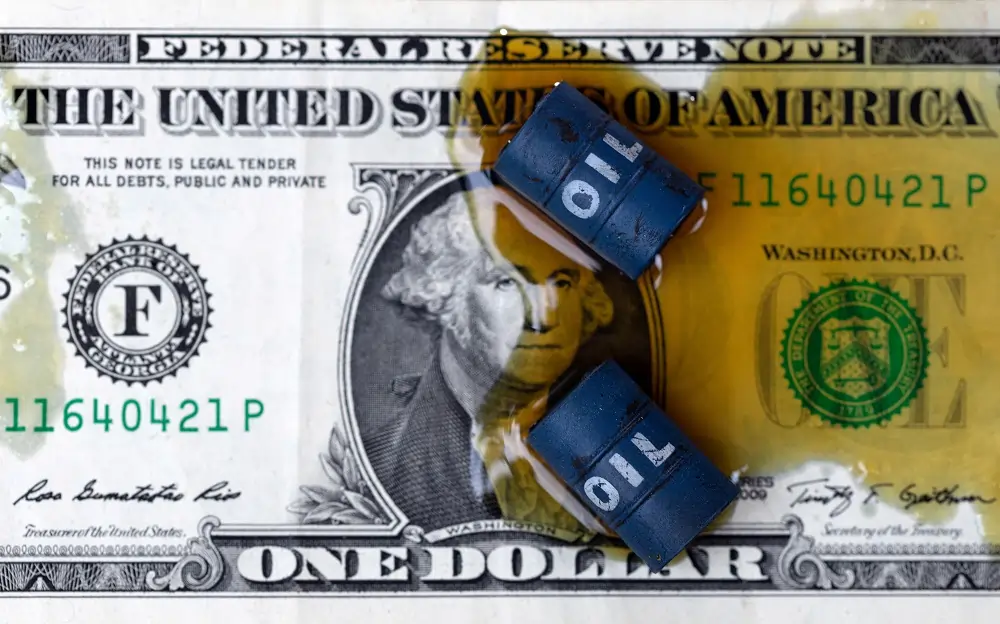
HOUSTON (Reuters) -Oil prices settled lower on Wednesday after the Federal Reserve held firm on its decision to hold off cutting U.S. interest rates in the near future, while growing U.S. crude stockpiles added further pressure.
Brent crude futures settled 3 cents lower, or 0.04% at $83.68 a barrel. U.S. West Texas Intermediate futures (WTI) settled 33 cents lower, or down 0,42% at $78.54. Both benchmarks had fallen $1 in earlier trading.
U.S. crude inventories rose by 4.2 million barrels last week, the Energy Information Administration (EIA) said, surpassing analysts’ expectations of 2.74 million.
Stockpiles have risen for five consecutive weeks due to unplanned refinery outages following a winter storm in January, along with planned plant turnarounds.
U.S. refinery utilization rates edged up 0.9 percentage point last week to 81.5% of total capacity, but were below the 10-year seasonal average. Refineries have operated below 83% utilization rates for the past month, their longest streak in nearly three years.
“Refiners are still sidelined to a great degree, and not making a real effort to rapidly come out of the shutdowns experienced in the aftermath of the cold snap,” John Kilduff, partner at New York-based Again Capital, said.
An ongoing outage at BP’s 435,000-barrel-per-day Whiting refinery in Indiana, the largest plant in the Midwest, has also reduced fuel stock levels, Kilduff said.
Gasoline stocks, in turn, have drawn down for a fourth straight week to a two-month low at 244.2 million barrels and about 2% below the five-year average for this time of year, the EIA said.
“If this trend continues for the next six to eight weeks, we could see gasoline inventories tighten up as we go into the driving season,” said Andrew Lipow, president of Lipow Oil Associates in Houston.
Reports on Tuesday that the Organization of the Petroleum Exporting Countries and allies led by Russia (OPEC+) will consider extending voluntary oil output cuts into the second quarter likely provided a floor to falling prices.
And hostilities in the Middle East may have provided some support, after Hamas called for Palestinians to march to Jerusalem’s Al-Aqsa Mosque at the start of Ramadan, raising the stakes in ongoing negotiations for a truce in Gaza, which U.S. President Joe Biden hopes will be in place by then.
However, signs that interest rates in the world’s largest economy would remain elevated offset potential gains.
Federal Reserve Bank of New York President John Williams said that, while inflation pressures have ebbed to a notable degree, he is not yet ready to say the central bank has done all it needs to do to get inflation back to the Fed’s 2% target.
Williams’ comment was in line with Fed Governor Michelle Bowman’s signals on Tuesday – that she was in no rush to cut U.S. interest rates, given continuing inflation risks. Higher-for-longer rates could dampen economic growth and suppress demand for oil.
Players in the oil market will be looking for clearer direction from Thursday’s January U.S. personal consumption expenditures (PCE) price index, the Fed’s preferred measure of inflation and a key factor in rate decisions.
“In case tomorrow’s U.S. PCE reading comes in above expectations, a temporary top might have been found for oil”, Tamas Varga of oil broker PVM said in a note.
(Reporting by Georgina McCartney in Houston, Paul Carsten in London, Mohi Narayan in New Delhi and Andrew Hayley in BeijingEditing by Marguerita Choy and Jonathan Oatis)


